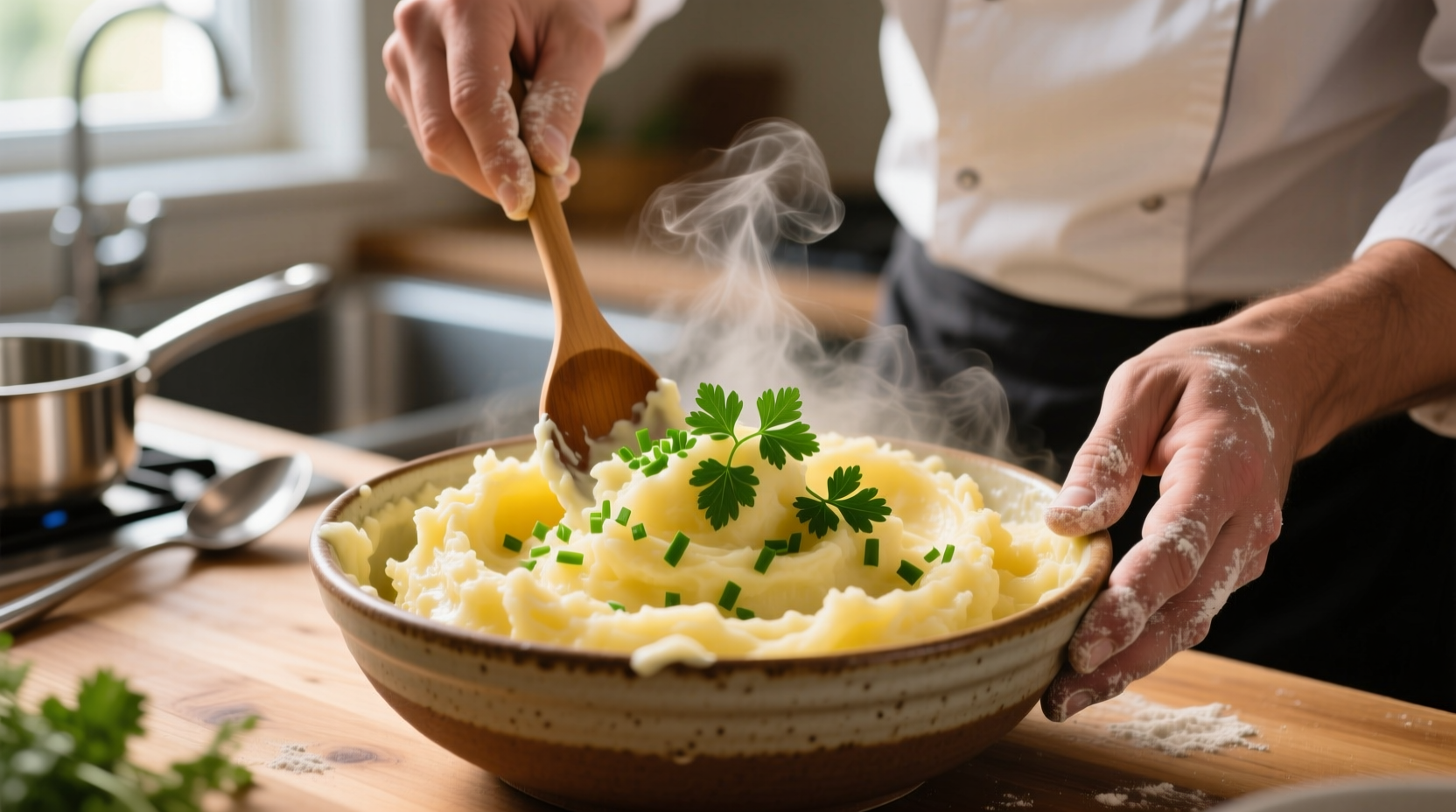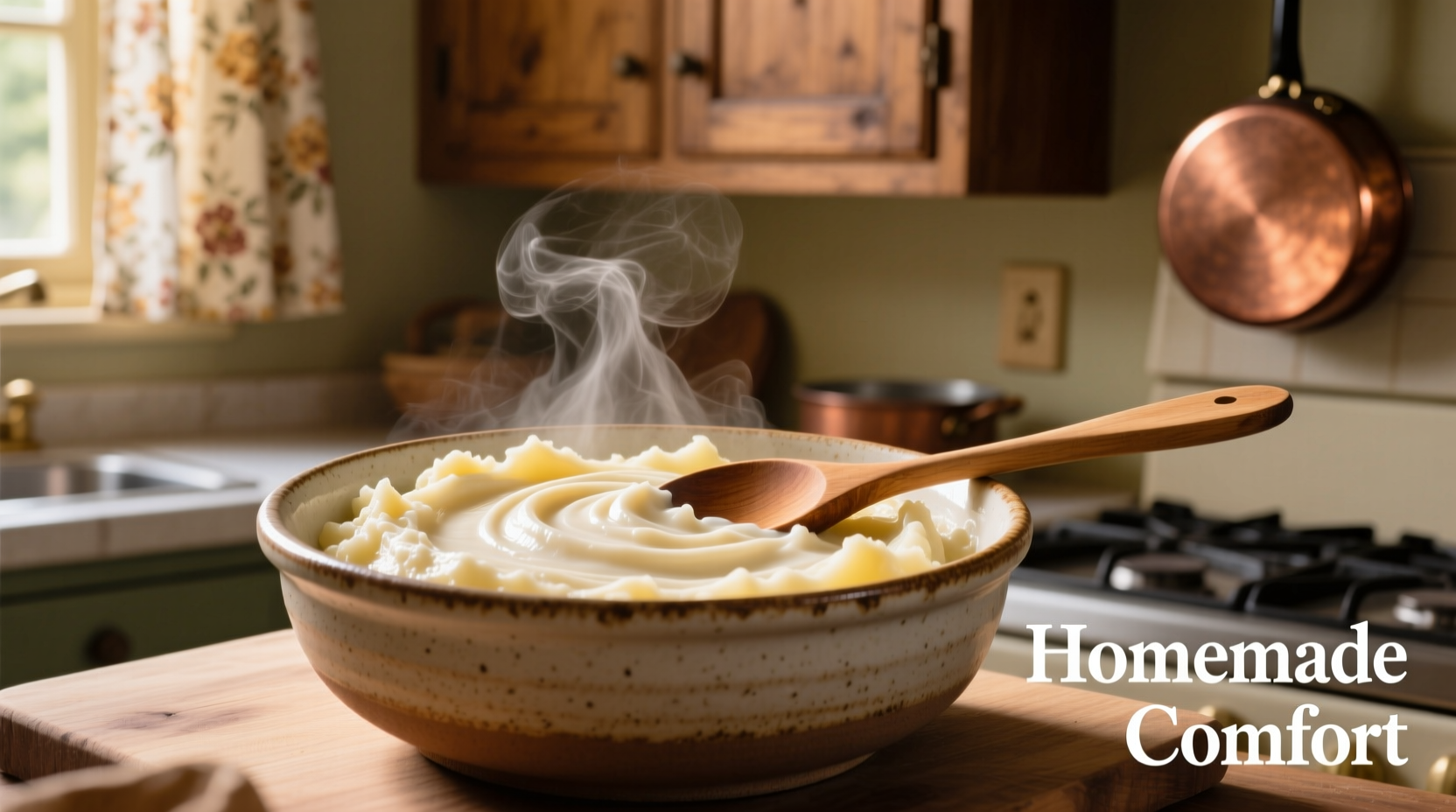When planning your next meal, understanding what complements mashed potatoes transforms a simple side dish into a culinary centerpiece. As a professional chef with experience across diverse culinary settings, I've discovered that the magic happens when you balance the creamy texture of mashed potatoes with contrasting elements that enhance rather than overwhelm their delicate flavor.
The Science Behind Perfect Pairings
Mashed potatoes possess a unique flavor profile that makes them incredibly versatile. Their mild, slightly sweet taste and smooth texture serve as the perfect canvas for complementary flavors. According to culinary research from the Culinary Institute of America, the starch content in potatoes creates a neutral base that absorbs surrounding flavors while providing textural contrast to more substantial components of a meal.
Professional chefs leverage this understanding to create balanced plates. The key principle? contrast and complement. You want elements that provide:
- Texture contrast (crispy, crunchy, or firm elements against creamy potatoes)
- Temperature variation (warm proteins with cool vegetable sides)
- Flavor balance (rich meats with acidic components)
- Visual appeal (color contrast on the plate)
Classic Pairings That Stand the Test of Time
Certain combinations have endured for generations because they simply work. These traditional pairings form the foundation of comfort food cuisine across many cultures:
| Meal Type | Best Protein Pairing | Recommended Vegetable | Essential Sauce/Seasoning |
|---|---|---|---|
| Weeknight Dinner | Pan-seared chicken breast | Steamed green beans | Peppercorn gravy |
| Sunday Roast | Roast beef or pork loin | Honey-glazed carrots | Red wine reduction |
| Holiday Feast | Herb-crusted turkey | Cranberry-glazed Brussels sprouts | Cranberry-orange gravy |
This pairing framework, documented in Harold McGee's On Food and Cooking, demonstrates how traditional combinations address multiple sensory elements simultaneously. The USDA FoodData Central confirms that these pairings also create nutritionally balanced meals when prepared with appropriate portions.
Modern Twists on Traditional Combinations
Contemporary chefs have expanded beyond traditional pairings while respecting the fundamental principles of flavor harmony. These innovative combinations maintain the comforting essence of mashed potatoes while introducing exciting new dimensions:
- Seafood Surprise: Pan-seared scallops with lemon-dill mashed potatoes and asparagus
- Vegan Delight: Mushroom-walnut "meatloaf" with garlic-herb mashed potatoes and roasted root vegetables
- Breakfast Reinvented: Smoked salmon and chive mashed potatoes with poached eggs and caper cream sauce
According to a 2024 survey by the American Culinary Federation, 68% of professional chefs now incorporate at least one non-traditional pairing element when serving mashed potatoes in upscale dining settings. This evolution reflects changing palates while maintaining respect for the dish's comforting roots.

Contextual Pairing Guidelines
Not all pairings work equally well in every situation. Understanding the context of your meal helps you select the most appropriate combinations:
Time of Day Considerations
Morning meals benefit from lighter pairings that don't overwhelm the palate early in the day. Try mashed potatoes with smoked trout and a light dill sauce for brunch, or incorporate them into a breakfast hash with bell peppers and onions.
Dietary Restrictions
For dairy-free versions, use roasted garlic and vegetable broth to maintain creaminess. Pair with grilled portobello mushrooms for a satisfying vegan option. When serving gluten-sensitive guests, opt for cornstarch-based gravies rather than traditional flour-thickened versions.
Seasonal Adaptations
Summer calls for lighter preparations—try chilled herb mashed potatoes with grilled chicken and a fresh tomato salad. Winter demands heartier combinations like braised short ribs with horseradish mashed potatoes and roasted root vegetables.
Avoiding Common Pairing Mistakes
Even experienced cooks sometimes make these pairing errors that diminish the potential of mashed potatoes:
- Overpowering flavors: Strong blue cheeses or intensely spicy elements can overwhelm the delicate potato flavor
- Texture monotony: Pairing with other creamy elements creates a one-dimensional eating experience
- Temperature mismatch: Serving cold proteins with hot mashed potatoes disrupts the eating experience
- Flavor repetition: Combining multiple starch-heavy elements without contrasting flavors
When in doubt, follow the professional chef's rule of thumb: if your plate has more than two creamy elements, reconsider your pairing strategy. The goal is creating a balanced plate where each component enhances the others.
Perfecting Your Pairing Technique
Mastering mashed potato pairings involves more than just selecting complementary ingredients—it's about understanding how to prepare and present them together:
- Timing is everything: Prepare proteins first, then finish mashed potatoes just before serving to maintain optimal temperature
- Seasoning synergy: Ensure your gravy or sauce contains elements that echo the seasonings in your potatoes
- Plate composition: Place mashed potatoes as the foundation, with proteins and vegetables arranged to create visual interest
- Finishing touches: A sprinkle of fresh herbs or a drizzle of infused oil can tie all elements together
Remember that the best pairings tell a story on the plate—one of balance, contrast, and thoughtful consideration of how each element contributes to the overall dining experience.











 浙公网安备
33010002000092号
浙公网安备
33010002000092号 浙B2-20120091-4
浙B2-20120091-4